
As most of you know, October is Breast Cancer Awareness Month, and we are honored to share Caroline Brown’s personal story of surviving breast cancer. Caroline is a friend who at age thirty received the incredibly hard news that she had Stage 2 breast cancer. With a full time career and desire to start a family of her own, the timing of her diagnosis was heartbreaking and also completely unexpected.
Now five years cancer-free with two precious children and one on the way, Caroline continues to volunteer every Tuesday evening visiting with in-patients who are undergoing cancer treatment. Her personal story about “dominating cancer” and not letting it define her life is so incredibly inspiring. Continue on below to learn more about her journey as well as to read her advice on the importance of regular exams, how to cope with a diagnosis and how to support those you may know who are battling cancer.
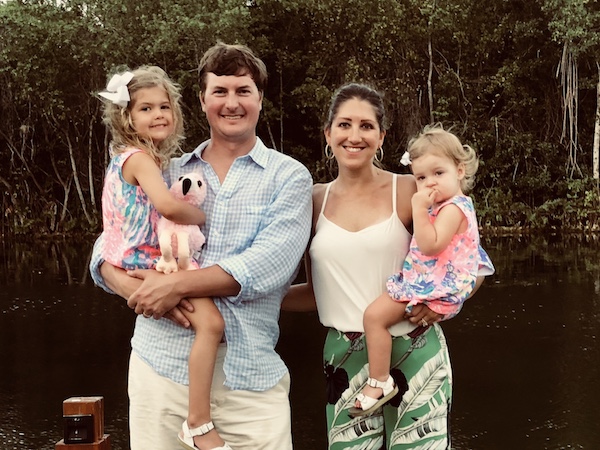
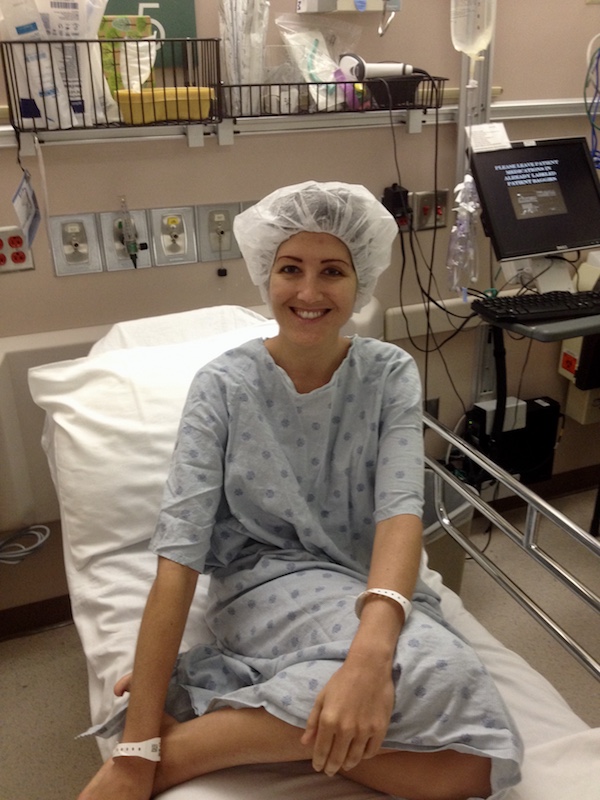


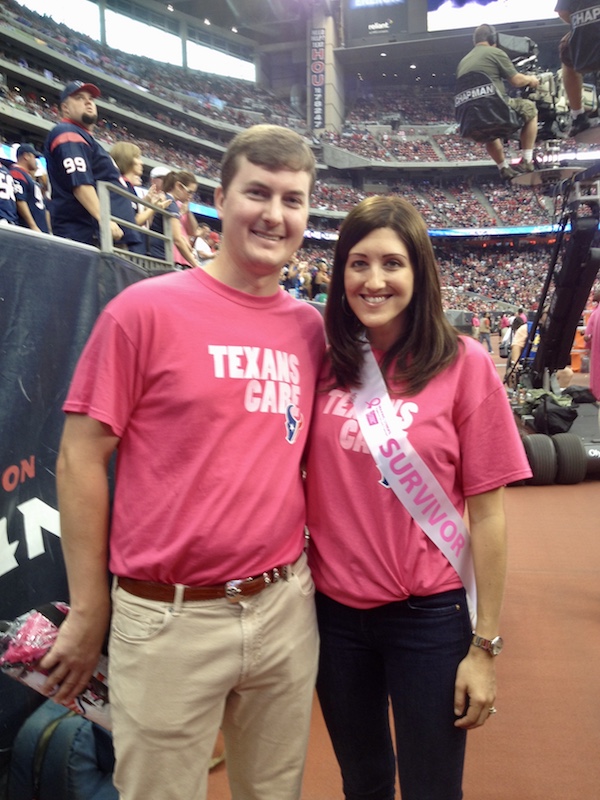
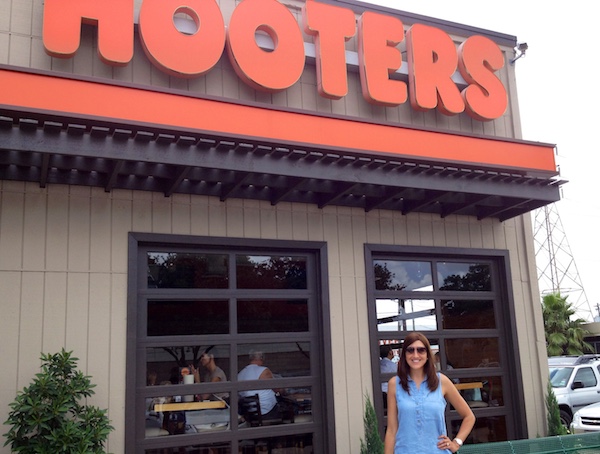

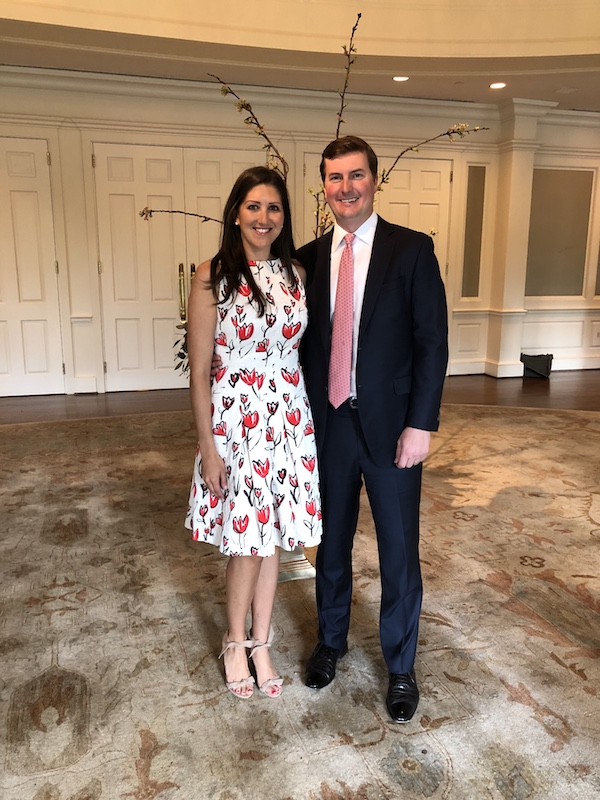
We’re so honored to hear and share your story as a breast cancer survivor. Thank you for helping us spread awareness about this disease during Breast Cancer Awareness Month.
First, tell everyone a little bit about yourself!
CB: I’m originally from Fort Worth, and I went to Duke University (Go Blue Devils!), where I met my husband, Will, who is from Houston. After college, I lived in Washington, D.C. where I worked in human resources for a research consulting firm, and then I lived in New York City and Greenwich, Connecticut, where I worked for Ascena Retail Group in Talent Development. Will and I moved to Houston in 2012, and I continued working with Ascena. I recently stopped working full-time and am now focused on being a mother, volunteering, and possibly determining my next career move!
You were diagnosed with breast cancer at a very young age. How old were you and how did you find out you had it? What was your diagnosis? Does it run in your family?
CB: I had recently turned 30 years old when I was diagnosed. It was October of 2012, and we had just moved to Houston two weeks prior, and I took a shower one night before going to bed. I was lathering up when my hand brushed against my left breast, and I felt a lump – something that I had never felt before. I knew in that moment that it was not supposed to be there. Will encouraged me to see a doctor immediately. I went to the doctor the next morning, who then referred me to have a mammogram, an ultrasound, and eventually a biopsy. Waiting for the test results was extremely nerve wracking. I flew to New York for work and had just arrived at the office when the nurse called me to give me my pathology report– I had early Stage 2 invasive ductal carcinoma. I was completely shocked and immediately left the office to head back to Houston. Two weeks later I was at MD Anderson talking about a treatment plan. Breast cancer does not run in my family, and I tested negative for the BRCA gene.
What is your message to other women about the importance of screening? Especially younger women?
CB: If there is one thing I can stress, it’s to know your body and to practice self-exams on a regular basis. It’s also extremely important to stay on top of your yearly well-women’s exams. Two months before I found the lump, I had my well-women’s exam and was told that I had very dense breasts – meaning that the tissue makes it more difficult to screen for tumors – but my doctor did not feel anything suspicious at the time. While I wasn’t technically giving myself a self-exam when I found the lump, I am so thankful that I found it when I did and that I immediately went to see a doctor. I never gave myself self-exams, and it was just luck that I happened to find the lump myself in the shower that night. What if I had waited an entire year for my next well-women’s exam? As women and mothers, we often put the needs of others (our children, our husbands, etc.) before ours. Taking control of your health by knowing your body, listening to your gut, and being proactive is so important. It’s also extremely important to know the factors that may put you at risk for developing breast cancer– whether that’s genetic factors, family history, or lifestyle factors.
It’s so hard to imagine what it would feel like to receive a cancer diagnosis. How did you process and cope with the news? Were there any resources that were especially helpful for you?
CB: Receiving my cancer diagnosis was extremely overwhelming. I was trying to take in all the information about my diagnosis and treatment plan while also trying to manage my emotions. My parents and husband went with me to that initial appointment, and hearing words like “chemotherapy”, “possibly radiation”, and “surgery” stunned us all. We all held hands and cried during the appointment when we realized that this would be a much bigger process than we had thought. I remember leaving my first doctor’s appointment and all I could say was, “This sucks. This just really sucks.” Not the most eloquent expression, but cancer just sucks and there really isn’t a better way to describe it. I have always been a “glass half full” type of girl, and I did my best to use my positivity to get me through those first initial weeks of my diagnosis. But I was scared, sad, confused, angry — you name the emotion, I experienced it. I relied heavily on my husband, family and close friends, and their love and support got me through some very dark days. I was also put in touch with several women who were breast cancer survivors and being able to talk with them about what I could expect was very helpful to me. I also knew that I would lose my hair during chemo, and I was referred to the most amazing resource, Ricky Knowles Hair and Wellness, who helped me secure a wig before my hair started falling out and who gave me a lot of information about hair loss during chemo. And having MD Anderson Cancer Center, the number one cancer hospital in the world, a few miles away from our house was a great help. I couldn’t imagine a better place to have been treated. It was almost like I was in the right place at the exact right time. I knew that I was in good hands.
What was your treatment process like? Is there anything you would like to share about the treatments and process that people might not realize?
CB: My breast cancer was a hormone receptor-positive cancer, meaning that it was receptive to estrogen and progesterone. My treatment plan included 5 months of chemotherapy, followed by a double mastectomy, reconstructive surgery, and ongoing hormonal therapy. And all before this treatment started, I had to go through the IVF process (chemo can impact your fertility – so it’s important to preserve your fertility if possible before undergoing chemo). As a young woman about to undergo chemo, this is just an added level of complexity. Before my treatment started, I had to have many more scans, biopsies, and blood work done – more needles than I could have imagined. I had an outpatient surgery to have a port put in underneath my skin so I could receive chemo, and now I am a proud owner of a 2 inch scar on my chest from the port –- it will be a forever reminder of my cancer journey. I received two different types of chemotherapy — 12 weekly doses of Taxol and 4 doses, every three weeks, of FAC (otherwise known in the chemo world as “the Red Devil” due to potential harsh side effects). Soon after I started chemo, my long, brown hair quickly thinned, so I made the decision to shave my head so I could sport my new wig. After I had completed my rounds of chemo, it was time for surgery – the main event in this entire process. My double mastectomy surgery lasted 8 hours, and I came home from the hospital two days after. I had my reconstructive surgery a few months after – the icing on the cake. And every morning, I take Tamoxifen, an estrogen-receptive modulator, that helps reduce the risk of recurrence. I am grateful that my treatment plan worked for me and I am reminded every morning, when I take my pill, of what I have been through.
One thing that surprised me was that I always equated chemotherapy with being really sick (like hugging-the-toilet sick). There were definitely days after chemo where I felt tired and run-down, but I was pleasantly surprised to see how my body responded to the chemo treatments. And I think this also shocked my friends and family. I had friends come to visit from out of town, and I think they were assuming we would just lounge around, whereas I was ready to get out of the house, go out to dinner, and just live my normal life!
How did your diagnosis affect your daily life and routine? Did you try to keep things as normal as possible or did you have to make significant adjustments?
CB: I didn’t want cancer to get in the way of me living my normal life, so I was determined to keep my routine as much as I could. My husband and I decided that the theme of my breast cancer would be to Dominate. I was not going to let cancer dominate my life – I was going to dominate cancer. I continued to work full-time (and was extremely grateful to my company for encouraging me to do so), and I also continued to exercise regularly – something that I found extremely important to my recovery. I discovered a new hobby that I loved, sporting clay shooting, and I joined my husband’s firm’s employee softball league. My husband and I went on trips and to friends’ weddings, and I planned girls’ nights and dinners with friends. I remember one day when my husband and I were headed out of town, and my husband mentioned something about my cancer, and I said, “You know what? For a moment, I actually just forgot that I even had cancer!” While cancer was part of my life, I refused to let it interfere with it. I also tried my best to keep my sense of humor throughout the process. The weeks leading up to my surgery became a time for us to try out some new restaurants – Will and I had lunch at Hooters one Saturday afternoon, and the weekend before surgery, we toasted to my breasts at the restaurant Twin Peaks.
For those of us who might have loved ones going through cancer treatments, what are the best ways we can provide encouragement and support?
CB: I never would have made it through my cancer battle if it wasn’t for the support of my family and friends. I realize it can be daunting when a loved one is going through something like this – you might feel like you don’t know what to do or say, so often at times, you just don’t say anything. I learned that even the smallest of gestures – a card with a personal note, an offer to sit with you during your chemo treatment, an encouraging text before you are about to go into a follow-up with your doctor –really do matter. I have saved every single card that I received during this time, and occasionally, I read them to remind myself of the incredible group of family and friends who were supporting me. I also decided to celebrate every milestone during my cancer journey – whether that was when I reached the halfway mark of chemo, when I reached the end of chemo, when I finished my first surgery, etc. My friends and family helped me celebrate each and every one of these.
Since being cancer-free you’ve had children through surrogacy. Tell us a little about your motherhood journey as a breast cancer survivor.
CB: Becoming a mother was the silver lining of my cancer journey. Because my cancer was receptive to hormones, my doctors told me that I should not carry my own children, as the hormones could fuel the cancer. Being 30 years old when I was diagnosed and ready to start a family, this was truly the most devastating news of all. I was going to lose my hair and my breasts to cancer, but to also lose my fertility – it was just heartbreaking. Not to mention that as a wife, I just felt like I was letting Will down – I knew he would make an amazing father. Will and I have always talked about wanting a large family, so we decided to not let this stop us and we looked into surrogacy. We found the most incredible woman who agreed to be our gestational carrier, and she has carried both of our girls (Margaret is 4 and Audrey is 2). It wasn’t the easiest road even with surrogacy (we had several failed IVF transfers), but in the end, it was all worth it. We are so incredibly grateful to our surrogate – she has given us our two most precious gifts, our girls. I am also immensely blessed to have Will. He never once hesitated when we started considering surrogacy and he truly has been the most amazing partner and father. While it was a unique path to motherhood, I couldn’t imagine it any differently. When I look at our girls, I am reminded of what it took for us to become parents, and I am even more thankful. And most exciting of all – we are expecting our third child in March, carried by our same surrogate!
Are there any major lifestyle changes you’ve made since you’ve recovered? What does remission mean for you?
CB: Before I was diagnosed, I exercised regularly, but now, exercise has truly become a staple in my routine. I try to exercise at least once a day, sometimes two – whether it’s spinning (I am addicted to SoulCycle and just celebrated 200 rides!), weight training, running, Pilates, tennis – you name it, I am up for it! I have realized that exercise is not only great for my physical health, but it is so important for my emotional and mental health as well. I also have seen a few different nutritionists and have made some adjustments in my eating habits – it’s so important to be aware of what you are putting into your body and how those foods can potentially help or harm you.
After my five year mark in 2017, I was promoted to “survivorship” status, so I see my doctor once a year for an exam. I will continue to take the daily Tamoxifen pill for a few more years as well. I am so proud to be in remission and to be a cancer survivor, and I try my best to use my positivity to dismiss any fears I have about recurrence.
I also was so grateful to MD Anderson and the care I received, so I decided to become a volunteer. I volunteer every Tuesday evening and visit with in-patients who are undergoing cancer treatment. It has been the most rewarding role – I am so inspired by the determination and optimism of the patients that I visit with who are fighting their cancer battles. Volunteering really feeds my soul and I feel like it is my purpose to give back.
How has your outlook on life changed since having breast cancer?
CB: I have tried my best to “not sweat the small stuff.” Cancer is no easy feat – I often think about what I went through and am amazed at how challenging that time of my life was. It can be easy to get worked up over small, trivial things, and I must remind myself that it’s important to take a breath, focus on the present, and embrace optimism. If I’m ever faced with a difficult situation or challenge, I give myself an internal pep talk and say, “Come on, you dominated cancer! You can do this!” I also truly learned the importance of friends and family. I thank God every day for the amazing people in my life who helped me through the hard times, and I strive to be a better friend, daughter, sister, and wife every day. I also vowed to myself that I would never again complain about having a bad hair day once my hair grew back – I am just so happy to have hair again!
Any words of advice or encouragement for anyone reading who might be going through cancer treatments?
CB: My heart goes out to anyone undergoing cancer treatments, as well as to their caregivers. A cancer diagnosis is daunting, scary, and overwhelming. I found it so helpful to break down my cancer treatment plan into smaller, achievable goals. My friends made me a countdown calendar that really helped me celebrate each of these goals when I reached them. I also want to stress that cancer doesn’t have to define or control your life – you have ownership of how you want to live your life. I recently stumbled upon a quote that I think sums up a cancer journey quite well: “Life is amazing. And then it’s awful. And then it’s amazing again. And in between the amazing and awful it’s ordinary and mundane and routine. Breathe in the amazing, hold on through the awful, and relax and exhale during the ordinary. That’s just living heartbreaking, soul-healing, amazing, awful, ordinary life. And it’s breathtakingly beautiful.”
― L.R. Knost
Do you go to any ongoing support groups that you would recommend?
CB: While I personally don’t attend any ongoing support groups, MD Anderson offers many support groups where you can connect with other cancer patients and survivors and share common experiences. MD Anderson also holds an annual Cancer 180 Young Adult Survivorship Conference for young adult patients, caregivers, and their families (regardless of where treatment is received). It’s a great resource to connect with other young survivors and learn from cancer experts.
Why is Breast Cancer Awareness month so important? What does it mean to you?
CB: Ironically, I was diagnosed with breast cancer in October, which is Breast Cancer Awareness month. To me, Breast Cancer Awareness month is so important because it’s a reminder to have your yearly well-women’s exam and/or mammogram, and a reminder to practice a self-exam if you haven’t done so in a while. It’s also a yearly reminder that so many people, organizations, and business are rallying behind this terrible disease. October also signifies another year of me being cancer free!
Are there any breast cancer organizations or current initiatives that you recommend supporting? We’d love to help in any way we can!
CB: There are so many incredible cancer organizations who are all rallying behind finding a cure and assisting breast cancer patients. One local organization that deserves attention is WIG OUT – an organization that repurposes quality wigs, headscarves and hats for those suffering from the side effects of chemotherapy and other cancer treatments. The Rose is also an extremely valuable regional organization as they provide “access to screening, diagnostics and treatment services to any woman regardless of her ability to pay.” The Breast Cancer Alliance, headquartered in Greenwich, CT and New York, focuses on early-stage research for better prevention, detection, and treatment. On a national level, the Breast Cancer Research Foundation and Susan G. Komen are amazing organizations that help fund research to prevent breast cancer and to find a cure. I personally am a huge advocate of the MD Anderson Volunteer Endowment for Patient Support, as they provide important programs to benefit patients and their caregivers throughout the cancer center. I, along with my family, benefitted from these programs while undergoing treatment.
If you have any additional questions or comments for Caroline, please leave them in the comments below!



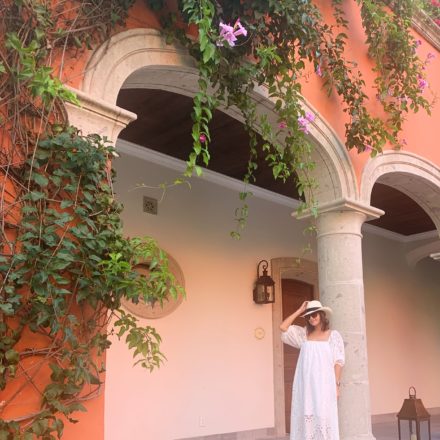

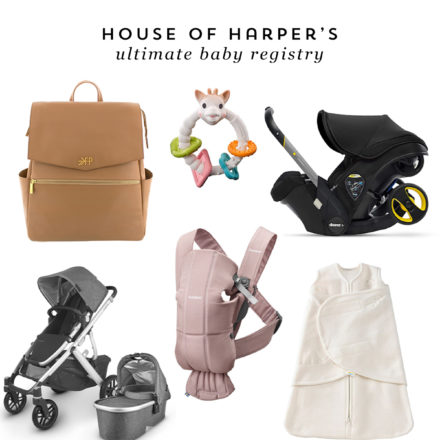
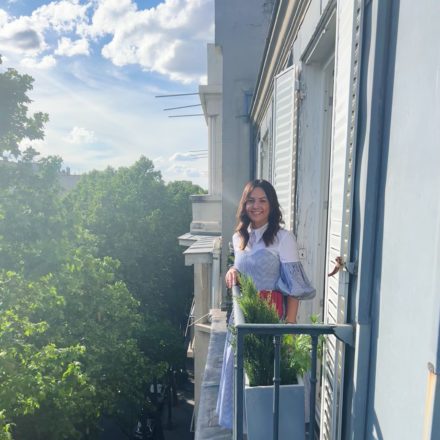
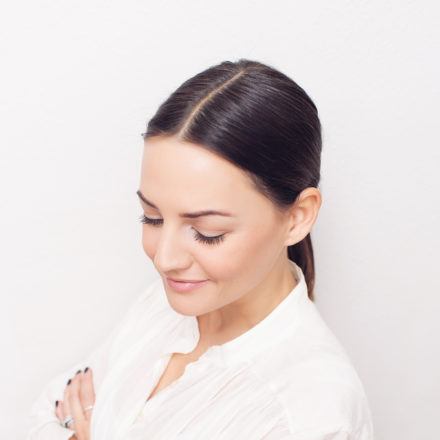
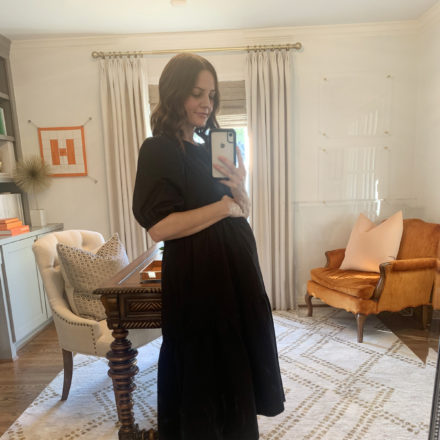
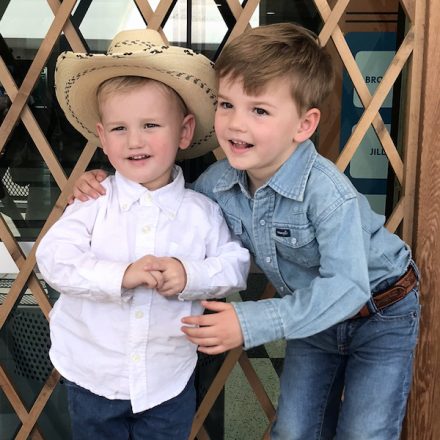
Such an inspiration for all woman. This was so heartwarming. Thanks for sharing your journey.